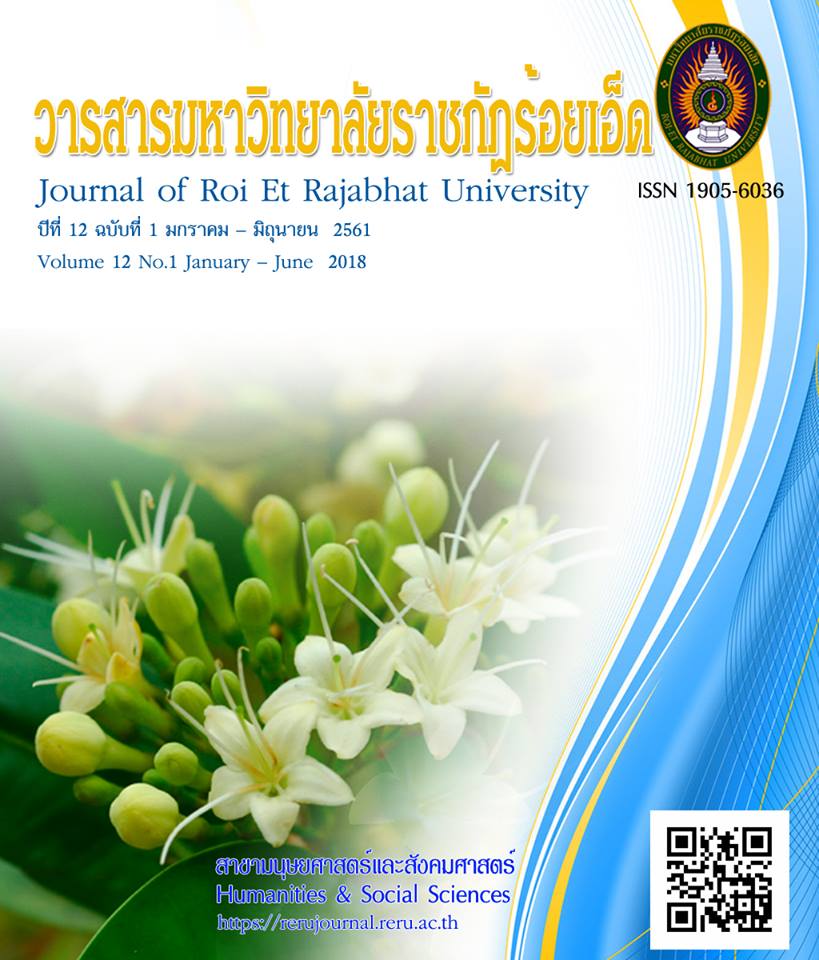Auditors’ Accounting Skills, Audit Professionalism, and Audit Success: Evidence from Certified Public Accountants (CPA) and Tax Auditors in Thailand
Keywords:
Accounting Skills of Auditors, Audit Professionalism, Audit SuccessAbstract
Knowledge and ability are key factors that affect auditing practice of auditors. Auditors need to have necessary knowledge and skills to be able to give correct comments on financial statements. Therefore, the objective of this study was to investigate relationships and effects of accounting skills on audit success through audit professionalism as a mediator variable. The accounting skills of auditors in this research were divided into 4 dimensions: professional skills, leadership skills, lifelong learning skills, and problem-solving skills. Data was collected through constructed survey questionnaires administrated among Tax Auditors and Certified Public Accountants in Thailand. 112 returned completed questionnaires were used for the data analysis. The results showed that the accounting skills of the sampled auditors in the dimensions of professional skills and lifelong learning skills were positively related to audit professionalism at a significant level. Likewise, audit professionalism was positively related to audit success at a significant level. The result from testing the relationship of the mediator variable revealed that audit professionalism did not influence the relationship between accounting skills and audit success.
References
กรมสรรพากร. (2560). ฐานข้อมูลรายชื่อผู้สอบบัญชีภาษีอากร. สืบค้นเมื่อ 15 มกราคม 2560, จาก www.rd.go.th
Alktani, S., & Ghareeb, A. (2014). Evaluation of the quality of the internal auditing position in the public sector in Saudi Arabia: An applied study. Global Review of Accounting and Finance, 5(1), 93–106.
Hannimitkulchai, K., & Ussahawanitchakit, P. (2016). Continuous audit development and audit survival: Evidence from tax auditors in Thailand. The Business and Management Review, 7(5), 487-498.
Hair, J.F., and others. (2010). Multivariate Data Analysis. 6th Ed. New Jersey: Pearson.
Haywood, ME., & Wygal, D.E. (2009). Ethics and professionalism: Bringing the topic to life in the classroom. Journal of Accounting Education, 27, 71-84.
International Education Standard (IES). (2012). www.IFAC.org
Kang, Y.J. and others., (2015). The effect of an Audit Judgment Rule on audit committee members’ professional skepticism: The case of accounting estimates. Accounting, Organizations and Society, 46, 59-76.
Merhout, J.W., & Buchman, S.E. (2007). Requisite skills and knowledge for entry-level IT auditors. Journal of Information Systems Education, 18(4), 469-477.
Ninlaphay, S., & Ussahawanitchakit, P. (2011). Accounting Professionalism, Financial Reporting Quality and Information Usefulness: Evidence from Exporting Firms in Thailand. Journal of International Business and Economics, 11(4).
Nunnally, Jum C., & Bernstein, Ira H. (1978). Psychometric Theory. New York, NY: McGraw-Hill.
Penini, G., and Carmeli, A. (2010). Auditing in organizations: A theoretical concept and empirical evidence. Systems Research and Behavioral Science, 27, 37–59.
Salameh, R., and other. 2011. Alternative internal audit structures and perceived effectiveness of internal audit in fraud prevention: Evidence from Jordanian banking industry. Canadian Social Science, 7(3), 40–50.
Siege. P.H., & O’Shaughnessy, J. (2008). Social skill characteristics that promote successful careers in internal audit. Internal Auditing, 23(1), 26-32.
Smith, G. (2005). Communication skills are critical for internal auditors. Managerial Auditing Journal, 20(5), 513-518.
Thongchai, C., & Ussahawanitchakit, P. (2015). Audit specialization and audit success: an empirical investigation of certified public accountants in Thailand. The Business and Management Review, 7(1), 395-407.
Wangcharoendate, S. (2015). Audit professional learning and the antecedents and consequences: an empirical study of tax auditor in Thailand. The Business and Management Review, 7(1), 143-156.
Wittayapoom, K., & Limanonthachai, T. (2016). Audit knowledge management strategies and audit job performance: A study of tax auditors in Thailand. The Business and Management Review, 7(5), 430-437.
Downloads
Published
How to Cite
Issue
Section
License
บทความที่ได้รับการตีพิมพ์เป็นลิขสิทธิ์ของวารสารมหาวิทยาลัยราชภัฎร้อยเอ็ด
ข้อความที่ปรากฏในบทความแต่ละเรื่องในวารสารวิชาการเล่มนี้เป็นความคิดเห็นส่วนตัวของผู้เขียนแต่ละท่านไม่เกี่ยวข้องกับมหาวิทยาลัยราชภัฎร้อยเอ็ด และคณาจารย์ท่านอื่นๆในมหาวิทยาลัยฯ แต่อย่างใด ความรับผิดชอบองค์ประกอบทั้งหมดของบทความแต่ละเรื่องเป็นของผู้เขียนแต่ละท่าน หากมีความผิดพลาดใดๆ ผู้เขียนแต่ละท่านจะรับผิดชอบบทความของตนเองแต่ผู้เดียว





